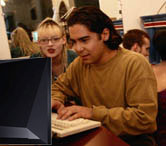
FRIDAY, May 14 (HealthDay News) — A new survey found that most high school juniors acknowledged cheating but said they didn’t always think they were wrong to engage in it.
“Students generally understand what constitutes cheating, but they do it anyway,” study co-author Kenneth Kiewra, a professor of educational psychology at University of Nebraska-Lincoln, said in a news release. “They cheat on tests, homework assignments and when writing reports. In some cases, though, students simply don’t grasp that some dishonest acts are cheating.”
The researchers anonymously surveyed 100 juniors from a high school in the Midwest, asking them about their experiences with cheating and what they thought about it.
Almost 90 percent said it would be cheating to glance at someone else’s answers on a test, but 87 percent said they’d done that. And while 94 percent said it would be cheating to give answers to someone else during a test, nearly three-quarters said they’d done that, too.
Fewer than half said it’s cheating to give test questions to another student who hasn’t taken the test yet; almost 70 percent acknowledged doing that.
“The results suggest that students’ attitudes are tied to effort. Cheating that still required students to put forth some effort was viewed as less dishonest than cheating that required little effort,” Kiewra said.
“Based on our findings, teachers should spell out for students what constitutes cheating. If a third of students are taking credit for ideas of others, then it’s time to make cheating actions clear,” Kiewra added. “Teachers also need to be more vigilant about policing and sanctioning cheating because just knowing what cheating is, is not enough. Students will do it anyway, if they can get away with it.”
The study appears online May 12 in the journal Mid-Western Educational Researcher.
More information
Kidshealth.org has more information on students and cheating.

